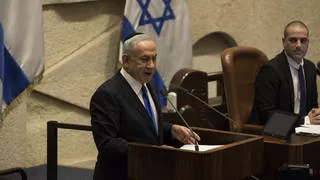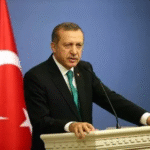Israel’s Quiet Redrawing of Borders: Knesset Vote Signals De Facto Annexation of West Bank Settlements

In a pivotal yet officially non-binding decision, the Israeli Knesset has overwhelmingly approved a resolution urging immediate sovereignty over Jewish settlements in the occupied West Bank and the Jordan Valley. The vote, passing 71 to 13, was backed by right-wing and center-right parties including Likud, Shas, Religious Zionism, Otzma Yehudit, and Yisrael Beiteinu. Although presented as symbolic, this move signals a significant shift toward institutionalizing Israeli control over key contested territories.
Context and Content of the Resolution
“Beat the Pressure: A Comprehensive Guide to Lowering Blood Pressure Naturally.”
Buy book from Gumroad or Paystack
The resolution cites the October 7, 2023 Hamas attack—termed the “Simchat Torah Massacre” in Israeli political discourse—as evidence that a Palestinian state poses an existential threat to Israel. It asserts Israel’s “natural, historical, and legal right” to all parts of the Land of Israel and calls on the government to extend sovereignty without delay over all Jewish settlements in Judea, Samaria (the biblical terms for the West Bank), and the Jordan Valley.
While the motion lacks legislative binding power, this declaration effectively redraws political boundaries by signaling a shift from military occupation to civilian Israeli governance over these settlements.
Implications: From Symbolism to De Facto Annexation
Experts on Palestinian affairs and Israeli politics reject the notion that this vote is merely symbolic. Saad Nimr, political science professor at Birzeit University, explains that the transition from military to civilian administrative control transforms settlements into Israeli cities, ending their status as “occupied” under military law. This legal and bureaucratic infrastructure lays the groundwork for permanent annexation, encompassing health services, infrastructure, planning, and welfare, with real-world consequences such as budget allocations and territorial expansion.
Dimitri Diliani, member of the Fatah Revolutionary Council, warns that the Knesset’s consensus institutionalizes and legitimizes Israel’s settler-colonial project within domestic politics. Legislative efforts are underway to replace internationally recognized terms like “West Bank” with “Judea and Samaria,” embedding a nationalist narrative into Israeli law.
Political Calculations Behind the Vote
Beyond ideological motivations, analysts interpret the vote as a strategic political maneuver to preserve Prime Minister Benjamin Netanyahu’s fragile coalition government. Right-wing factions threatened to exit the coalition if ceasefire negotiations with Hamas advanced. In response, Netanyahu offered this resolution as a symbolic concession to the far-right bloc, maintaining their support during ongoing truce talks mediated by Qatar.
This political transaction highlights how internal Israeli dynamics influence territorial policy while complicating peace prospects.
International Response: Condemnation Without Consequences
The international community’s reaction was immediate but largely ineffectual. Jordan condemned the move as a violation of international law, while the European Union and Arab League reaffirmed commitment to a two-state solution. However, analysts view these responses as insufficient to deter Israel’s course.
Diliani notes that Israel’s close alignment with Western powers, notably the United States, shields it from meaningful sanctions despite documented war crimes and humanitarian crises in Gaza and the West Bank. US military aid continues at $3.8 billion annually, with billions more provided since the October 2023 Gaza conflict began. Similarly, the European Union maintains extensive trade relations with Israel, including significant exports of dual-use technologies.
This tacit international acquiescence emboldens Israel to proceed with annexation policies without fear of accountability.
The Western Double Standard and Its Consequences
The analysts argue that Israel’s treatment reflects a broader geopolitical double standard. While Russia faced sweeping sanctions after Crimea’s annexation in 2014, Israel’s de facto annexation and military actions in Palestinian territories receive diplomatic cover and increased arms transfers. Israel is framed as a strategic Western ally and colonial stronghold in the Middle East, ensuring violations of international law are overlooked.
Moreover, allegations of antisemitism are often used to silence critics of Israeli policies, further insulating Israel from international criticism and accountability.
The Broken International Legal Framework
Nimr calls for a global reassessment of the post-World War II international legal system, highlighting the ineffectiveness of the United Nations and the Security Council, where the US veto protects Israel from resolutions. He argues that the current system is broken, allowing Israel to act with impunity.
What Lies Ahead: Palestinian Challenges and Calls for Action
Both Nimr and Diliani view the Knesset vote as a turning point, marking the effective end of the two-state solution and the Oslo framework. Nimr urges the Palestinian Authority to respond decisively by ending security coordination with Israel, a move that would signal rejection of Oslo’s compromised terms. He also calls for Palestinian political unity across factions to confront this existential threat.
Diliani emphasizes the need to focus on grassroots resistance, mobilize international civil society, and dismantle the myth of Israeli democracy, as the reality is the normalization of apartheid and settler colonial domination enforced through legal mechanisms.
In sum, the Israeli Knesset’s resolution, while framed as symbolic, constitutes a profound and deliberate redrawing of territorial realities on the ground. It institutionalizes the annexation of Palestinian lands, undermining prospects for peace and reinforcing a system of occupation and settler-colonialism supported by an international community reluctant to impose meaningful consequences. The Palestinian leadership and global actors face urgent challenges in responding to this new geopolitical landscape.
💔 “She said she loved me. And for fifty-two years, I believed her.” 💔
Buy The Book "The Longest Lie: A Husband’s Journey Through Love, Betrayal, and Redemption" From Gumroad






